
Have you heard?
In the era of COVID-19, Caribbean coral reefs are facing an epidemic of their own: Stony Coral Tissue Loss Disease.
First discovered off the coast of Florida in 2014, this new lethal disease travels fast (up to 50 metres per day), and has already reached The Bahamas, killing thousands of corals in its wake. To determine the extent of its spread, PIMS visited many coral reefs off Grand Bahama and Abaco last week.
One site that stood out was the beautiful Sandy Point Reef off South Abaco, known for its underwater tunnel, and swirling schools of grunts surrounded by a gorgonian forest.
The best part?
“We saw no traces of Stony Coral Tissue Loss Disease,” said Dr. Craig Dahlgren, Executive Director of PIMS. “After seeing it on many reefs over the past few days, I was ecstatic.”
Indeed, the majority of reefs we visited off Grand Bahama were infected with the new tissue loss disease, and we observed record numbers of dead pillar coral and brain coral colonies.
“That’s why it was so nice to see healthy symmetrical brain corals, and also pillar corals at Sandy Point,” said Dr. Valeria Pizarro, PIMS’ Senior Scientist. “These have become really rare species on some coral reefs.”
Sadly, on reefs with high rates of infection, Stony Coral Tissue Loss Disease will likely cause local extinctions of these iconic Caribbean species.

How can you help?
1- Just like washing your hands, we can all do our part to stop the spread of Stony Coral Tissue Loss Disease. If you’re SCUBA diving in the Caribbean, remember to disinfect your gear after each dive to prevent the accidental transmission of this disease between reefs. Sodium percarbonate mixed with seawater works well for this. Your neoprene gear in particular – like wetsuits and booties – can harbor harmful bacteria and microorganisms for long periods of time.
2- If you see Stony Coral Tissue Loss Disease in The Bahamas, report it here.
3- Lastly, consider joining the Reef Rescue Network! We work with dive shops across the Caribbean to empower citizen scientists (like you!) to outplant Critically Endangered corals onto reefs, creating more diversity and fish habitat in the process.

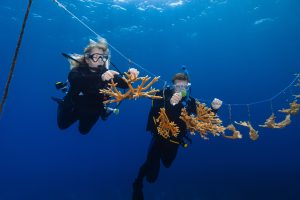
Stream2Sea Coral Care: The World’s First Reef-Positive Sunscreen
Stream2Sea Coral Care: The World’s First Reef-Positive Sunscreen | Perry Institute for Marine Science Conservation Partners Stream2Sea Coral Care: The World’s First Reef-Positive Sunscreen Discover why PIMS has partnered with

Build a Coral Reef for the Holidays | PIMS x Partanna
PIMS is partnering with Partanna to build a 100m² carbon-negative reef. Rick Fox is matching donations up to $25k. Help us build a sanctuary for the future.
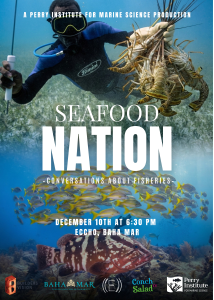
“Seafood Nation” Documentary Premiere Explores the Heart of Bahamian Culture and the Future of Fisheries
NASSAU, The Bahamas | December 5, 2025 – From the bustling stalls of Potter’s Cay to family kitchen tables across the archipelago, seafood is far more than just sustenance in
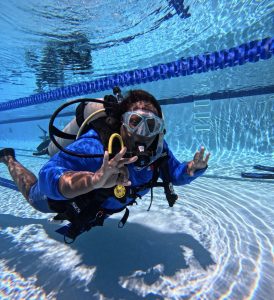
PIMS and Disney Conservation Fund Partner to Train 19 Government Divers
PIMS dive training in Nassau strengthened national coral restoration capacity across government agencies. Bahamas Dive Training Builds National Coral Restoration Capacity Last fall, between the months of September and October,
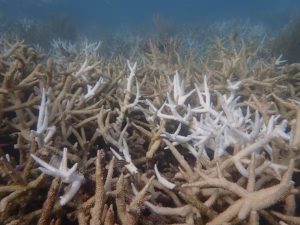
Florida’s Coral Reef Crossed a Line: What Functional Extinction Really Means for Elkhorn and Staghorn Corals
Reefs didn’t just bleach. They functionally vanished in one summer. A new Science study co-authored by researchers from the Perry Institute for Marine Science (PIMS) has found that Florida’s two
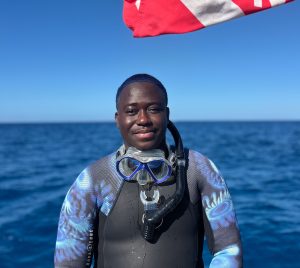
Q&A: Understanding the IDC Course at PIMS with Duran Mitchell
A former aquarist turned coral conservationist, Duran is passionate about understanding how all marine life connects. PIMS & IDC: Empowering New Dive Instructors for Marine Conservation PIMS & IDC: Empowering



